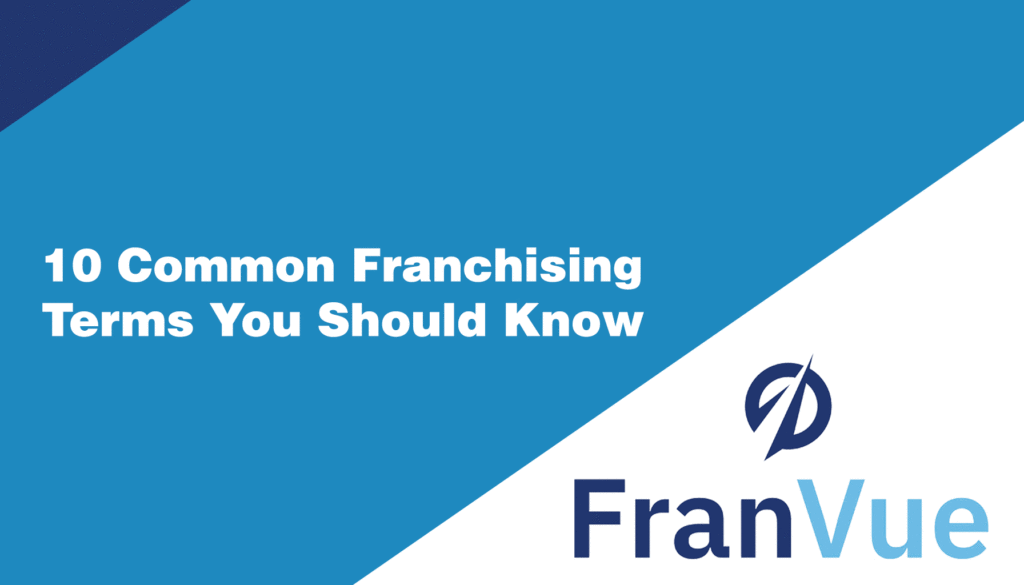Almost every industry has its own language, and franchising is no exception. This language and the terminology used can be confusing for those who have just ventured into the franchising world.
To help clear that confusion, we have defined below 10 common terms used in this industry that is full of opportunities. We hope that with this knowledge, you will be able to do better research on your franchise options and make the right decision for your future.
Franchising Terms You Need to Know
Franchise: A franchise refers to a license that gives a person the right to use trademarks, logos, and other intellectual property of an already-existing business.
Franchisor: The franchisor, also called the parent company, is an already-existing business that gives other people the chance to operate with them in exchange for a fee.
Franchisee: The franchisee (or franchise owner) is the person who purchases the license to open a franchise from the franchisor.
Franchise Disclosure Document (FDD): Franchise disclosure document is a document that you need to read through before purchasing a franchise. It provides all the information that will let you know whether or not a franchise is good for you. It reveals how the franchise system works and contains valuable information about the franchisor.
Franchise Agreement: This is an agreement or contract between the franchisee (yourself) and the franchisor (the parent company). You’ll be asked to sign this agreement once you have decided to purchase a franchise and start the business. This document will outline your role as a franchise and what the franchisors expect from you!
Term of Agreement: This is how long the franchisor agreement will be valid for. The term of the agreement usually ranges from 5 to 20 years. When the term is over, the franchisor may decide to renew the contract if the partnership works out fine or end/renegotiate the agreement if otherwise.
Franchise Fee: A franchise fee is an initial payment that franchisors typically require to give franchisees the rights to operate under their name and use their branding and proprietary information.
Royalty Fee: Aside from the franchise fee, franchisors also collect a fee on every sale made by the franchisee. This fee is known as the royalty fee, and it is paid at regular intervals, i.e., weekly, monthly, quarterly, or yearly. While some franchisors charge a flat fee, others ask for a certain percentage of sales.
In-House Financing: The costs of operating a franchise can be daunting when starting out, so a lot of franchisors provide in-house financing options to help prospective franchise owners. Financing options can be used to pay the fees or other expenses like equipment or inventory.
Third-Party Financing: A lot of franchisees prefer to get funding from other sources, i.e., commercial banks or specialty financing companies. Any organization apart from the franchisor that provides funds for a franchise business is known as a third-party financing agent.
Ready to Open a Franchise?
While you may not be ready to purchase a franchise now, you have taken a big step towards achieving that since having learned some of the most common terms. You can now take the leap into the franchise world. Research the various franchise industries you want to enter and find a franchise opportunity that’s right for you.


